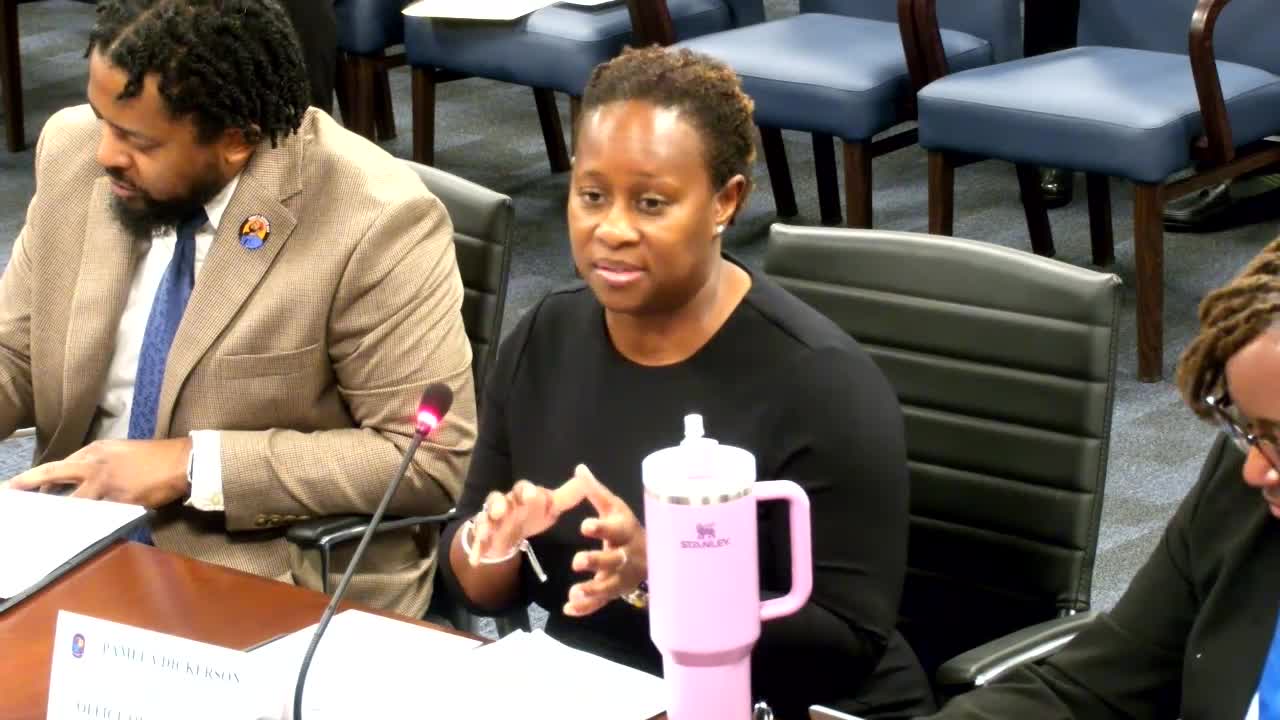Board of License Commissioners to implement new licensing software; cites underage‑sale enforcement and outreach needs
Get AI-powered insights, summaries, and transcripts
Subscribe
Summary
The Board of License Commissioners presented a FY26 budget and said it is implementing a new licensing software suite, reducing audit findings and focusing enforcement on underage sales; staff suggested more proactive licensee training to reduce violations.
The Board of License Commissioners briefed the Government Operations and Fiscal Policy Committee on April 7 about its FY26 proposed budget, a new licensing software implementation and ongoing enforcement priorities including underage alcohol sales.
David Williams, council budget analyst, presented the board’s FY26 proposed budget of approximately $2.19 million — a rise of about $139,300 or 6.8% above FY25 — and said the agency’s staffing complement remains nine full‑time positions and 19 part‑time positions. The presentation also noted a technology project: a new licensing software suite with a total project estimate cited as about $550,000 and a FY26 obligation presented as roughly $87,700.
Terence Shepherd, executive director for the Board of License Commissioners, said the board recently completed a state‑mandated audit with far fewer findings than prior audits and described the software upgrade as a consolidation of older systems for licensing and inspections. Shepherd said the board will implement the new software in the coming months and expects OIT cooperation to support the rollout.
Shepherd described underage alcohol sales and noncompliance with sourcing requirements as recurring challenges. He said the board uses underage decoys and inspectors and that staffing for inspection positions had part‑time vacancies; he also noted licensees sometimes purchase alcohol from non‑licensed sellers (for example, retail outlets outside the county or other non‑wholesaler sources), which the board’s rules prohibit. Shepherd said the agency has added a compliance checklist and more active front‑end review for new licensees and suggested recurring training or a concise “top‑10 violations” guidance for licensees to reduce common problems.
Committee members asked about legal support during hearings. Shepherd said the board engages outside counsel under a personal services contract (the presentation named the contract attorney) to advise commissioners at licensing and violation hearings; commissioners themselves are appointed by the county executive, serve staggered three‑year terms and are confirmed by the county council.
Why this matters: licensing decisions and enforcement practices shape public safety and business compliance in the county’s alcohol retail market. The board said a new software system and clearer licensee guidance are expected to reduce administrative friction, speed renewals and limit repeat violations.
The board will return with more details as the licensing software is implemented and said it would consider expanding training options and proactive outreach to reduce underage sales and other common violations.
